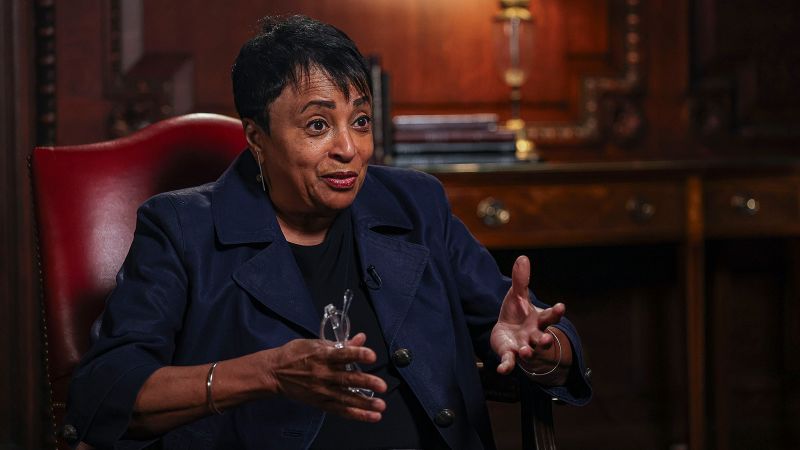On Thursday, it was announced that the White House had formally notified Librarian of Congress Carla Hayden of her removal from her esteemed position. A spokesperson for the Library of Congress provided confirmation of the event to CNN, marking a significant shift in the leadership of one of the most influential institutions in the nation. Hayden, who made history as both the first woman and the first Black individual to serve in this role, had already been in her position since September 2016 and had approximately 18 months remaining in her ten-year term.
The specifics surrounding Hayden’s dismissal were not immediately transparent, but it quickly drew criticism, particularly from several congressional Democrats. They expressed concerns that President Donald Trump was strategically targeting literary content as part of a broader cultural initiative. House Minority Leader Hakeem Jeffries articulated a strong condemnation of the decision, declaring Hayden’s termination as “a disgrace” that aligns with what he described as an ongoing effort by the administration to ban books and manipulate the narrative of American history.
In the midst of the political backlash, CNN reached out to the White House for clarification and commentary, yet responses remained elusive. The abrupt dismissal left many questioning the implications for the Library of Congress and its mission to provide access to an expansive array of information resources. The Library is renowned as the largest library in the world, with a staggering collection that exceeds 178 million items, including books, photographs, musical instruments, and ancient artifacts, serving as the primary research hub for the United States Congress.
Throughout her tenure, Carla Hayden had expressed her intention to democratize access to the Library of Congress’ extensive collections. She aimed to extend the institution’s reach to individuals who may not have direct access to the physical library located in the nation’s capital—a vision reflecting a modern approach to library services. Her leadership saw innovative initiatives designed to engage diverse communities and facilitate access to cultural and historical resources.
One notable moment during Hayden’s administration occurred in 2022 when she allowed Grammy-winning singer and flutist Lizzo to perform with President James Madison’s 200-year-old crystal flute during a different concert in Washington, D.C. This symbolic act garnered significant media attention and showcased a contemporary approach to cultural exchange that Hayden sought to embody during her term.
Senator Martin Heinrich, a Democrat from New Mexico, praised Hayden for her efforts to make the Library of Congress accessible to all Americans, including outreach to rural areas. He lauded her commitment to ensuring that the pursuit of knowledge was within reach for everyone, contrasting her progressive approach with what he perceived as President Trump’s intents to limit access to information by dictating what people should read or abstain from reading.
Heinrich’s comments underscored a growing sentiment in the political landscape regarding the importance of libraries and educational resources as bastions of democracy and intellectual freedom. He encouraged others to follow Hayden’s exemplary dedication to promoting the importance of reading and fostering an informed citizenry, thereby setting a benchmark for public service.
This unfolding saga around Carla Hayden’s removal continued to develop, and further details were anticipated in the media. While the full implications of her dismissal remain to be seen, the incident has certainly stirred up conversations about censorship, academic freedom, and the essential role of libraries in the contemporary social fabric of the United States. CNN’s detailed coverage of this significant event drew on contributions from reporters Jamie Gangel and Samantha Waldenberg, reflecting the media’s keen awareness of the incident’s widespread implications.



